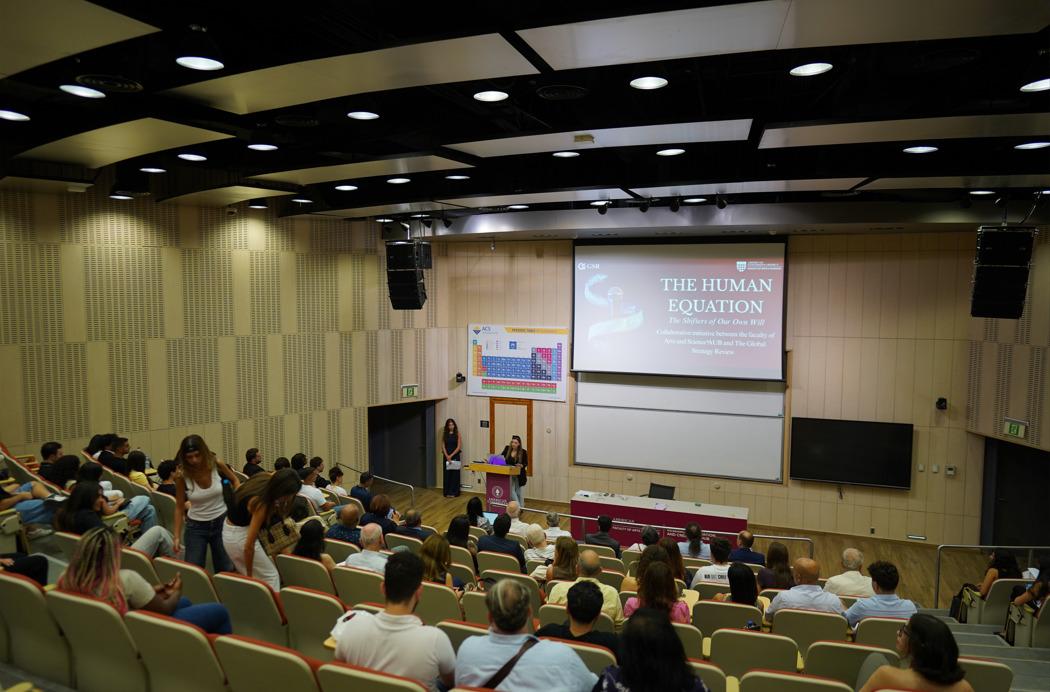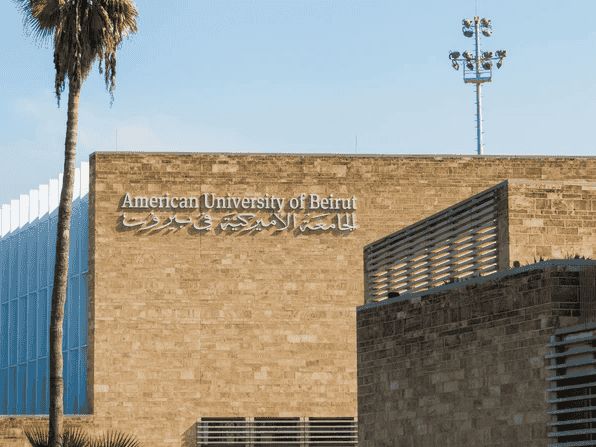
Beirut, Lebanon (Enmaeya News) — The Global Strategy Review (GSR) and the Faculty of Arts and Sciences (FAS) at the American University of Beirut collaborated on The Human Equation conference, a student-led event that explored the impact of social phenomena and inequalities on neuroplasticity and the evolution of the human nervous system.
The conference took place Saturday at the American University of Beirut, showcasing youth-led academia and featuring student researchers and organizers.
Samer Sayyour, founding member of GSR and Chair of Collaborations and Media, explained how the initiative began.
“This event came to place, we really wanted a conference, and because our foster faculty was FAS, we knew that a collaboration between GSR and our very own faculty would be perfect,” he said. “We wanted to show the attendees that the youth of today are capable. The engineers of tomorrow are the thinkers of today, and all of our contestants proved that.”
Elie Joe Akiki, Chair of Research, discussed the conference’s theme and its relevance in Lebanon. He reflected on the gap between Lebanon’s democratic constitution and lived realities.
“On paper, you are allowed to do whatever you want, but there are external games — biological, social, lobbying, patriarchy, even trauma, that shape our perspectives and sometimes undermine democracy,” Akiki said.
He emphasized the importance of bridging youth and research, explaining that GSR provides an umbrella for students to gather diverse skills and collaborate in pursuit of truth.
Selina Riachi, Chair of Editing and Articles, said the theme The Human Equation ties into GSR’s broader body of work.
“Everyone is interested in what it means to be human and what impacts our reality, so our writers are very keen on pursuing that subject,” she said. “The theme is extremely relevant to Lebanon today. The part on politics highlighted how politics deeply influences our lives, while the part on biology showed us that we are capable of steering our lives and reclaiming our agency.”
Riachi added that GSR actively encourages youth research by offering diverse topics and providing mentorship from experienced researchers. “By supporting students through their research journeys, we help them embrace research as a necessary muscle they must train before graduating,” she said.
The conference concluded by awarding Gaelle Hankash, whose winning research examined the role of the subconscious mind and the autonomic nervous system in the progression of neurodegenerative diseases such as Alzheimer’s and Parkinson’s.
“My research highlights how psychological factors such as chronic stress, trauma, and subconscious thought patterns can drive biological changes in the brain,” Hankash said.
She explained that her work bridges neuroscience and psychology, emphasizing that subconscious experiences have measurable biological impacts. “This perspective opens new doors for prevention and therapy, not just in terms of medication but also psychological interventions.”
Hankash said she chose the topic after noticing that many families reported emotional and stress-related changes years before diagnosis. “Exploring the subconscious offered a way to connect those human experiences with biological mechanisms,” she said.
Offering advice to young researchers, Hankash urged them to follow curiosity, cultivate resilience, and focus on human impact. “If you can keep the human impact of your work in focus, your motivation will remain strong, and your contributions will be truly valuable,” she said.
The Human Equation conference highlighted the strength of youth-led academia in Lebanon, showing how students can combine rigorous research with fresh perspectives on society, science and humanity.





